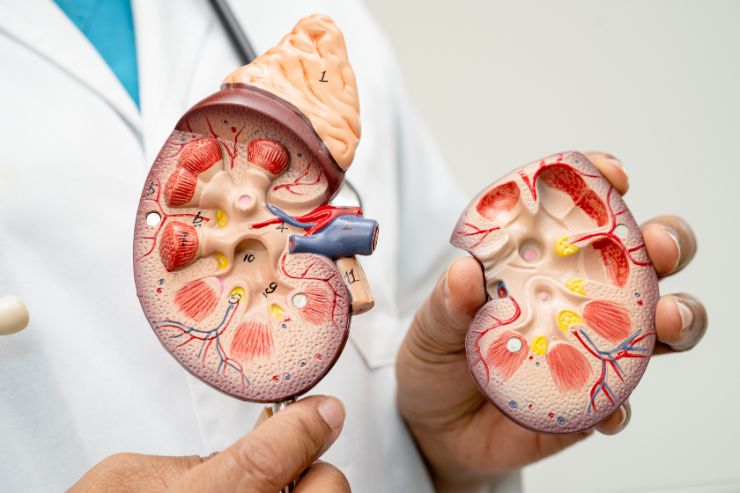
At Our Hospital is a leading healthcare facility that offers specialized services for the diagnosis, treatment, and management of Chronic Kidney Failure (CKF). CKF, also known as chronic kidney disease (CKD), is a gradual loss of kidney function over time. Effective management is crucial to slow the progression of the disease, manage symptoms, and maintain a good quality of life.
Comprehensive Blood Tests: Routine blood tests to measure serum creatinine, blood urea nitrogen (BUN), and glomerular filtration rate (GFR) are performed to assess kidney function and stage CKF.
Urine Analysis: Urine tests to detect protein (proteinuria), blood (hematuria), and other abnormalities that indicate kidney damage.
Electrolyte and Acid-Base Balance Testing: Blood tests to monitor electrolyte levels (sodium, potassium, calcium, phosphate) and acid-base balance, as imbalances can be common in CKF.
Renal Biopsy: In some cases, a kidney biopsy may be performed to determine the underlying cause of kidney damage and to guide treatment decisions.
Medication Management: Personalized medication regimens to control blood pressure, manage diabetes, reduce proteinuria, and treat symptoms of CKF. Common medications include ACE inhibitors, angiotensin II receptor blockers (ARBs), diuretics, phosphate binders, and erythropoiesis-stimulating agents (ESAs).
Dialysis: Hemodialysis and peritoneal dialysis services for patients with advanced CKF. Hemodialysis involves filtering the blood through a machine, while peritoneal dialysis uses the lining of the abdomen to filter blood inside the body.
Nutritional Counseling: Renal dietitians provide personalized dietary plans to manage CKF, focusing on controlling intake of protein, sodium, potassium, phosphorus, and fluids to reduce the burden on the kidneys.
Lifestyle Modification Programs: Comprehensive programs to encourage weight management, physical activity, smoking cessation, and other lifestyle changes that can help manage CKF and improve overall health.
Regular Monitoring and Follow-Up: Frequent monitoring of kidney function, blood pressure, and other relevant parameters to adjust treatment plans as needed and ensure optimal management of CKF.
Patient Education Programs: Regular workshops and educational sessions to help patients understand CKF, its causes, treatment options, and self-management strategies to improve outcomes and quality of life.
Psychosocial Support: Counseling and support groups for patients and their families to address the emotional and psychological challenges associated with CKF and its treatment.
Telemedicine Services: Remote consultation options for follow-up appointments, medication adjustments, and ongoing support, ensuring continuous care without the need for frequent hospital visits.
Emergency Care: 24/7 emergency services to handle acute complications of CKF, such as severe electrolyte imbalances, infections, or acute kidney injury.
Shri Balaji Kidney Care hosts top-notch nephrologists and pathologists to deliver expert care. Our state-of-the-art facility offers advanced diagnostics and specialized treatments to ensure your optimal health. Trust our dedicated team to provide personalized, compassionate care for all your medical needs.